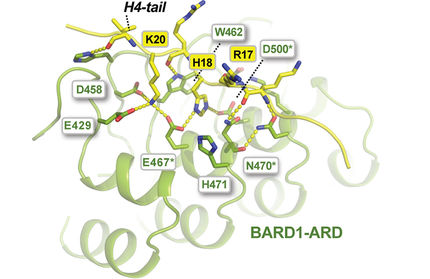Merck, Pfizer and Verastem Announce Combination Trial of Avelumab and VS-6063 in Ovarian Cancer
Merck, Pfizer and Verastem announced that they have entered into an agreement to evaluate avelumab, an investigational fully human anti-PD-L1 IgG1 monoclonal antibody, in combination with Verastem’s VS-6063, an investigational focal adhesion kinase (FAK) inhibitor, in patients with advanced ovarian cancer. Avelumab is currently under clinical investigation across a broad range of tumor types. The Phase I/Ib clinical trial is expected to begin in the second half of 2016. Financial terms of the agreement have not been disclosed.

Merck KGaA
“Combination strategies in immuno-oncology offer significant promise for patients in need. Through our collaboration with Verastem, we hope to accelerate our understanding of avelumab and its potential as a combination therapy with FAK inhibition for patients fighting ovarian cancer,” said Dr. Alise Reicin, Head of Global Clinical Development at Merck’s biopharma business.
“Through this collaboration, we hope to advance our understanding of how FAK inhibition may complement our development program for avelumab, with the ultimate goal of potentially achieving better outcomes for women with ovarian cancer,” said Chris Boshoff, Vice President and Head of Early Development, Translational and Immuno-Oncology at Pfizer Oncology.
“Recent research shows that FAK inhibitors could be beneficial in combination with immuno-oncology agents. We are excited to be working with Merck and Pfizer to build upon the early clinical signals observed in patients with ovarian cancer receiving combination therapy with VS-6063,” said Robert Forrester, Verastem President and Chief Executive Officer.
FAK is a protein which is often overproduced in tumors, enabling cancer cells to evade attack by the immune system. As reported in the September 24, 2015, edition of Cell, pre-clinical research shows that FAK inhibition can modulate the balance of immune cells in the tumor, increasing the presence of cytotoxic T cells in the tumor and decreasing the presence of immunosuppressive T regulatory cells.
Most read news
Other news from the department business & finance

Get the life science industry in your inbox
By submitting this form you agree that LUMITOS AG will send you the newsletter(s) selected above by email. Your data will not be passed on to third parties. Your data will be stored and processed in accordance with our data protection regulations. LUMITOS may contact you by email for the purpose of advertising or market and opinion surveys. You can revoke your consent at any time without giving reasons to LUMITOS AG, Ernst-Augustin-Str. 2, 12489 Berlin, Germany or by e-mail at revoke@lumitos.com with effect for the future. In addition, each email contains a link to unsubscribe from the corresponding newsletter.




















































